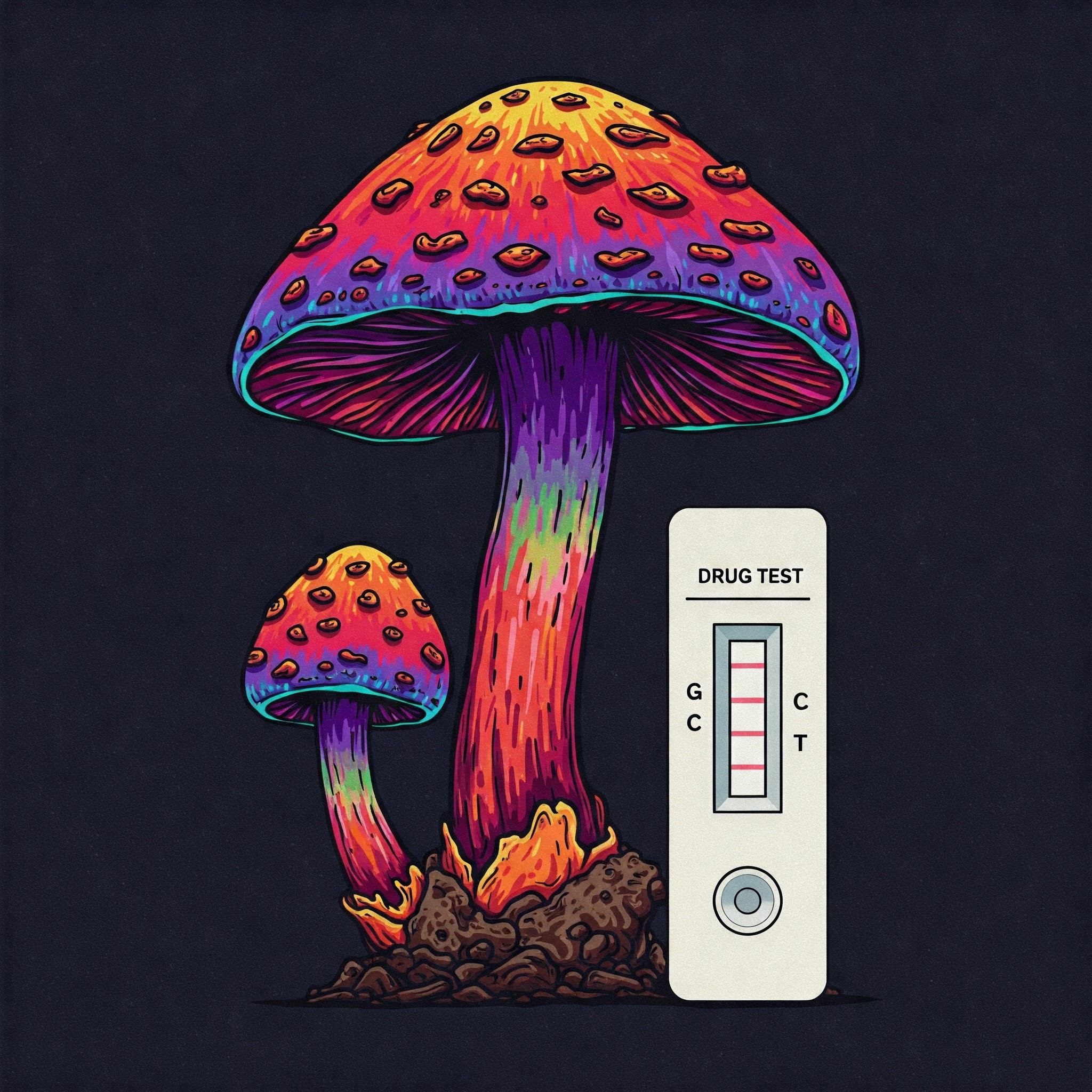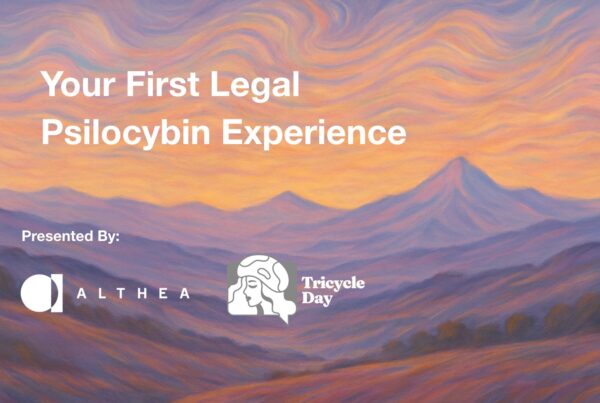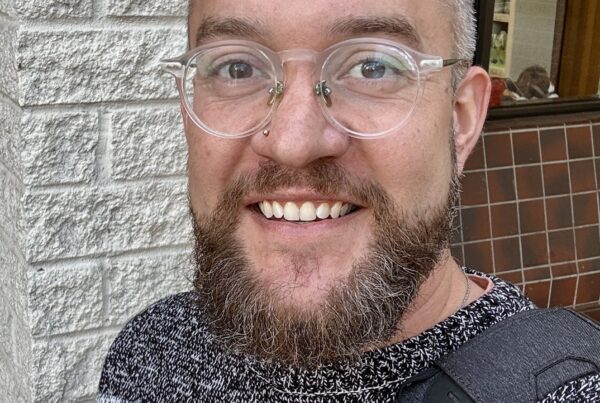
Does Psilocybin Show Up on Drug Tests?
As legal access to psilocybin therapy expands, a common question we hear at Althea is: “Will psilocybin show up on a drug test?” Whether you’re signed up for a psychedelic experience or simply exploring your options, it’s important to understand how psilocybin interacts with standard drug screening practices—especially in contexts like employment, medical care, or legal proceedings.
The short answer? Psilocybin is not included in most standard drug tests. But the long answer is more nuanced, and depends on the type of test, the organization requesting it, and how recently the substance was used.
What Is Psilocybin, Technically Speaking?
Psilocybin is a naturally-occurring psychedelic compound found in certain species of mushrooms. Once ingested, psilocybin is quickly converted into psilocin, the active compound that produces changes in perception, mood, and cognition. It’s this metabolite—psilocin—that would show up on a drug test, if the test is designed to detect it.
Unlike substances like THC or opioids, psilocybin and psilocin are not typically included in routine drug panels, such as the SAMHSA-5, which screens for:
- THC (marijuana)
- Cocaine
- Amphetamines
- Opiates
- PCP
Unless a test is specifically designed to detect psychedelics, psilocybin will not trigger a positive result.
Source: SAMHSA FAQ & DOT 5-panel Drug Test
When Can Psilocybin Show Up on a Drug Test?
Although rare, there are some scenarios where psilocybin might be detected:
Expanded or Specialized Panels
Some employers, treatment programs, or legal authorities may request expanded panels that test for a wider array of substances, including hallucinogens. These tests can detect:
- Psilocin (the metabolite of psilocybin)
- LSD
- MDMA*
- Mescaline
These panels are much less common and more expensive, so they’re typically used in specific contexts—such as forensic toxicology or high-security job screenings.
*It should be noted that MDMA is chemically similar to amphetamines, so it can sometimes trigger a positive result on the amphetamine panel. But a standard SAMHSA-5 test does not specifically test for MDMA unless a confirmatory test (like GC-MS or LC-MS/MS) is ordered with MDMA included.
Military or Government Testing
Certain branches of the military or government agencies may conduct broader screenings. In some cases, DoD labs or security clearance investigations may test for hallucinogens, including psilocybin.
Substance Abuse Monitoring Programs
If someone is enrolled in a substance abuse program or court-mandated treatment, their testing panel may be expanded to include psilocin. These situations are typically very tailored and closely monitored.
How Long Does Psilocybin Stay in Your System?
Psilocybin is metabolized quickly. Here’s what we know:
- Psilocin (the active compound) is usually detectable in urine for up to 24 hours after ingestion.
- In blood, psilocin has a shorter detection window—typically just a few hours.
- Hair follicle testing could, in theory, detect psilocybin use for up to 90 days, but it’s extremely rare for psilocybin to be tested this way.
Source: National Library of Medicine
So, unless the test is administered within a day or so of use and is designed specifically to detect psilocin, the substance will likely not be found.
Are There Risks to Consider for Clients Using Legal Psilocybin?
For individuals engaging in psilocybin services in Oregon or other legal jurisdictions, drug testing can feel like a gray area—especially if you’re employed in a field with strict policies.
Here are a few considerations:
- Know your employer’s policy: If your employer uses a standard 5-panel drug test, psilocybin likely isn’t a concern. But if you’re in a federal role, healthcare, or a safety-sensitive industry, check if hallucinogens are included in your panel.
- Document your legal use: In Oregon, psilocybin use within the state’s regulated framework is legal. However, legality does not always shield against employment consequences, especially with at-will employment laws.
- Be proactive: If you’re concerned, consult with your HR department, a legal advisor, or your facilitator for guidance on how to navigate any potential risks.
What About Facilitators and Service Center Staff?
Facilitators and staff in licensed psilocybin service centers may also wonder about drug testing policies. While psilocybin use is legal within the bounds of Oregon’s regulations, professional conduct and public safety remain important.
If you’re working in the field:
- Follow professional guidelines around personal use and safety.
- Understand your service center’s employment policies, particularly around off-duty psychedelic use.
- Be mindful of federal employment or licensing requirements, where stricter drug use standards may still apply.
The Bottom Line
While psilocybin is not part of most standard drug tests, it’s not entirely undetectable. If you’re using psilocybin legally, especially under Oregon’s regulated system, the risk of detection is low—but not zero.
Understanding your specific context is key. At Althea, we support informed, empowered engagement with psilocybin services. That means helping you understand the practicalities, not just the possibilities.
Still have questions? Our team is here to help you navigate the personal, professional, and legal aspects of your journey with clarity and care.




